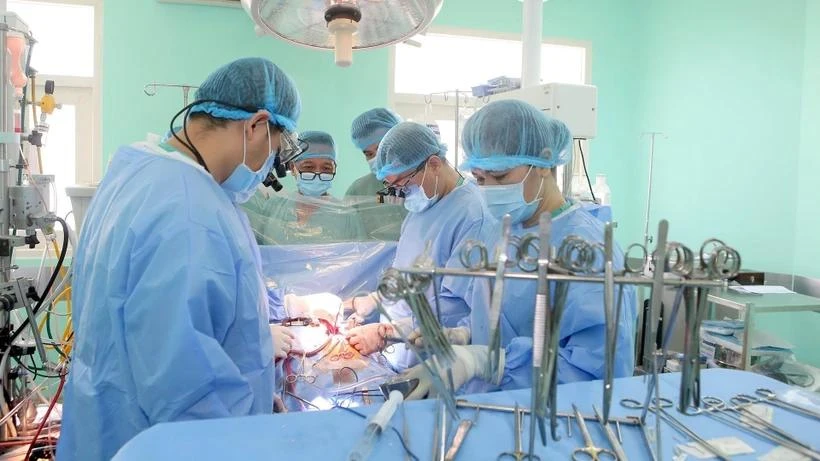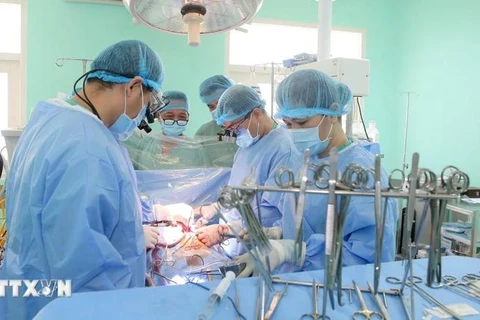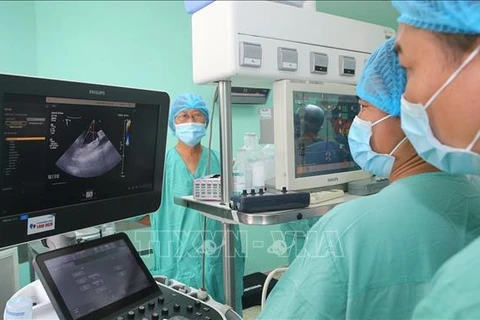
Hanoi (VNA) – Organ transplantation requires not only the development of the healthcare sector but also higher numbers of active organ donors from the general public.
Assoc. Prof. Nguyen Thi Kim Tien, Chairwoman of the Vietnam Tissue and Organ Donation Advocacy Association, said the number of organ donors in the country last year accounted for only 0.15%, ranking 38th in the world, while the global rate stood at 50 donors per 1 million people.
This shows that the number of organ donors is very low, so it is necessary to step up the building and perfection of legal documents surrounding the process.
Traditional conception needs to be changed
Assoc. Prof. Nguyen Thi Kim Tien said one healthy organ donor can save tens of others. In the recent past, especially since Prime Minister Pham Minh Chinh launched a tissue and organ donation campaign on May 19, the number of registered donors has been on the rise.
More than 10,000 people registered for tissue and organ donation within two weeks after the launch. The rate of donations after death also doubled compared to the same period last year.
Tien considered this as an encouraging sign for the tissue and organ donation movement in Vietnam.
However, she pointed out that many people signed up to donate but when they passed away, without their relatives’ consent, doctors were also unable to collect organs.

On discussing difficulties in organ donation advocacy, Assoc. Prof. Dong Van He, Director of the Vietnam National Coordinating Centre for Human Organ Transplantation (VNHOT), said current rules stipulate that only when the donor’s family gives consent can doctors collect donated organs. The family means all blood relations of the donor, and objections from any one of them nullify the donation.
Tien said that it is necessary to change people’s conceptions of the value of organ donation after death. Communication activities should spread the message that donating means giving relatives a chance to live on forever. Relevant agencies also need to identify targeted groups to adopt effective communication platforms.

Bonze Thich An Dat, a member of the Executive Council of the Vietnam Buddhist Sangha, said communication is a critically important step in organ donation advocacy. The Vietnam Buddhist Sangha is coordinating with relevant parties to carry out communications in the community.
Positive signs
He said hospitals need to work closely with one another to coordinate donated organ supply. The VNHOT used to have to contact many hospitals, but patients had passed on before they could undergo transplants. Some hospitals provided notification only two hours in advance, making coordination extremely difficult.
The VNHOT set up nine councils to improve coordination in June. Five functioned as coordination centers while the other four were for donation. It also specified a coordination process along with criteria for transplantation and the provision of emergency aid.
The establishment of those councils will help healthcare facilities participate in the tissue and organ donation networks while ensuring organ distribution is transparent and efficient.

The councils will convene meetings every three or four months and issue consistent processes to be applied nationwide.
Previously, donors had to register directly at the VNHOT or via email. From May, they can register online and, from July, via social networks./.






















